Last week, Michael Eric Dyson’s New Republic essay taking Cornel West to task for various perceived missteps, including West’s harsh critique of Obama, raised questions, for me and many others, about the role of the black public intellectual. Just days after that article’s publication, as spirited responses continued whizzing around the Internet, news broke that another esteemed black academic was embroiled in a controversy involving actor Ben Affleck. Henry Louis Gates was accused of scrubbing evidence of Affleck’s slave-owning ancestry from an episode of his celebrity genealogy show on PBS. Affleck had requested the storyline be left out.
All of this left me wondering, do these highly publicized but narrowly focused events tell us anything about the state of black public discourse? At a moment when the killing of black people by police officers and vigilantes is finally at the center of mainstream conversation, who are the black academics demanding that we dig beneath pat explanations? And do you have to be a man and over the age of 50 to be among their ranks?
So I reached out to some black scholars who have sizable followings outside the academy. I asked what conversations are vital to black American communities right now. This is a purely subjective sampling; there are a great many more thinkers to note, but these are some of my own favorites. Some responded in conversation, others via e-mail. Their answers have been edited for length and clarity.
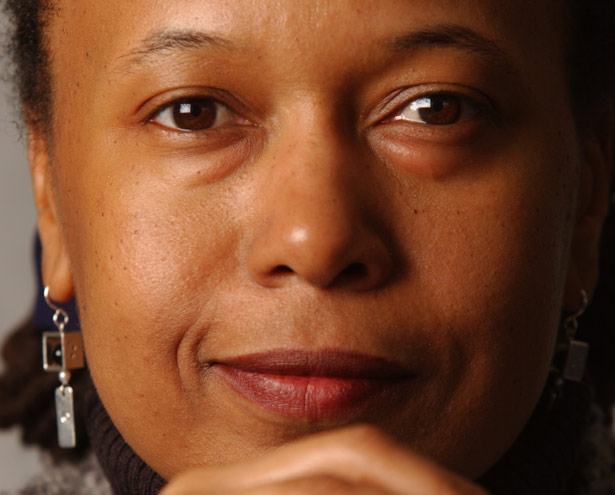
Cathy Cohen
Professor of Political Science, University of Chicago
Founder of the Black Youth Project, a national organization that amplifies the voices of young black activists
When I asked Cohen what conversation black people need to be engaged in now, she said, “It’s hard to say anything other than Baltimore. In many ways, Baltimore is representative of what many people have called the neoliberal city.” She defined this as a city that has adopted policies that prioritize “privatization, disinvestment from poor communities and communities of color, disinvestment from the welfare state and reinvestment in the carceral state.
“How do we begin to think about the larger context in which the killing of Michael Brown or Tamir Rice continues to happen? These aren’t isolated incidents. This is about how we invest in cities, how we humanize black people, the segregation of white people.… Whites are probably the most segregated group in the country. That allows for the dehumanization of young black people, in that you get police officers who really do believe that they fear for their lives when they encounter young black men, because they are only privy to pop cultural representations.
“We also want to pay attention to the type of resistance and mobilization that we’re seeing from young black people in this moment. We’re in the process of reimagining what black politics is going to look like.” Cohen points to Millennials’ use of online social networks for organizing, as well as their efforts to build movements that explicitly reject sexism, homophobia, and transphobia. “Those of us in the academy, we have an opportunity to help amplify the voices of young black activists who are really reframing what black politics might be in the 21st century. We have an opportunity and a responsibility to empower them.”
Popular
"swipe left below to view more authors"Swipe →
Find her work here and follow her @cathyjcohen.
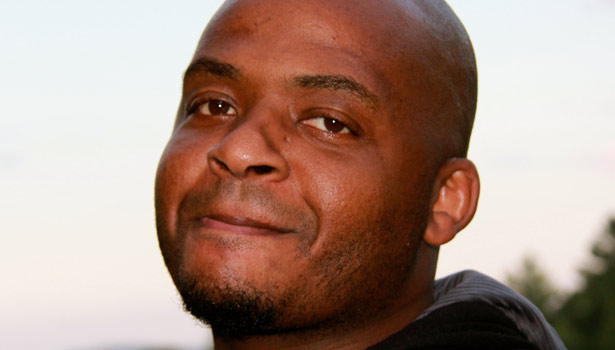
Kiese Laymon
Associate Professor of English, Vassar College
Author and contributing editor at Gawker, where he runs weekly “True Stories” essays by young writers exploring race, class, sexuality, and gender
Laymon makes it a point to take his work off campus and off the page. “Outside of writing,” he said via e-mail, “I’ve given six workshops and listening sessions at high schools, detention centers, colleges and community centers in the last two weeks.
“I want to use whatever position I have to provide young folks of color with space to write and read.… As much as possible, we need to hear young people assessing their positions in their communities and imagining ways to make our communities better.… And without being heavy-handed, I’m trying to show young folks regardless of sexuality or gender that there are models of awe-inspiring humanness in folks like Audre Lorde, Fannie Lou Hamer and probably their own grandmothers. We’ve got to show young people what other wonderfully flawed black folk did and let them know that it’s more than okay to find models of superb humanity in folks other than Martin King or Malcolm X.”
“I also think that every critique made of what our people aren’t doing needs to be complemented by the writer or critic talking about how they too have failed to meet a specific standard. At the end of the day, we just have to be more honest. Transformation from one state to another is impossible if we aren’t honest about who we are and what we’ve done.”
Follow him @KieseLaymon and note this recent conversation on emotional justice with radio talk show host Esther Armah.

Alexis Pauline Gumbs
Provost, Eternal Summer of the Black Feminist Mind, which Gumbs describes as “a very tiny but intergalactic black feminist university”
“My intellectual work [asks] how can we channel the experiences, the mistakes, the visions, the insight of our revolutionary ancestors into the present? How can we be present with them? Because it’s absolutely relevant and necessary for everything we’re facing.… It is the job of the storytellers, the intellectuals, the keepers of these stories to come back and say, ‘Remember this, remember this, remember this.’
“Folks are thinking about what’s happening in Baltimore. I think it’s great that people have been quoting Frederick Douglass, who lived in Baltimore for some time. Harriet Tubman was from Eastern Shore, Maryland. [She is] an ancestor who specifically broke the law because she believed in black freedom and was targeted by all the resources that the state could mobilize. But now she’s a national hero… [laughs] Nobody’s saying these kids are our next Harriet Tubman, but are they not?”
I asked Gumbs, who has a PhD in English, black studies, and women and gender studies from Duke, about her decision to work in the community rather than at a university.
“There have always been community-accountable black intellectuals doing their intellectual work in a variety of spaces.… There’s a difference between producing work that is valuable to some large institution and foundation…and what it takes to think about what’s useful to these kids in my community and their grandparents, who are on my porch saying, ‘We need to talk about this.’ They’re saying, ‘Alexis, we trust you to call up the sacred text. What’s the sacred text for this moment?’”
Find her work here and follow her at @alexispauline.
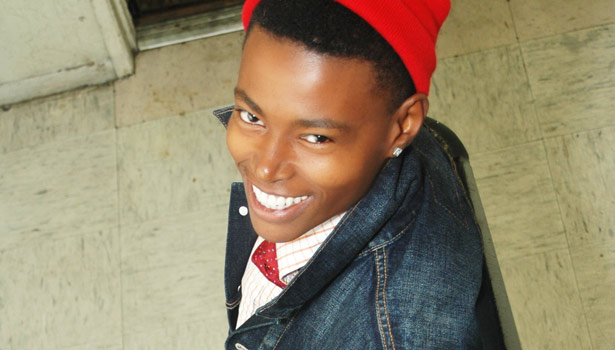
Kai Green
Postdoctoral Fellow, Northwestern University, Sexualities Project at Northwestern (SPAN) and African-American Studies
“I teach classes on blackness and queerness from a black feminist perspective. In the classroom I try to help my students…understand the strategies that black queer folk used for survival in a hostile world. I talk about the necessity of abolitionist art, and encourage my students to be courageous to make it, which is difficult at times, when students are so afraid to talk about race for fear of being called racist. I encourage my students to take risks.… I teach them how freedom dreams and the black radical imagination is a tool necessary for now.
“We should be talking about Baltimore, Oakland, Detroit, Chicago, Ferguson.… We should be talking about strategies for building local and global movements that target white supremacy and capitalism.… We should be talking about HIV/AIDS. We need people to reiterate #allblacklivesmatter, ’cause if all of a sudden black men stopped being murdered by vigilantes and cops, would black women then be safe too? Would black queer folk be safe?… With all that’s going on in the world, we still need to pay attention to our bodies, our mental states, and our personal relationships. Self-care is also necessary for now. Holding people accountable is also necessary for now. We should be talking, but also understand that more important perhaps is that we become more fluent in the language of the unheard and listen.”
Follow his work at @Kai_MG.
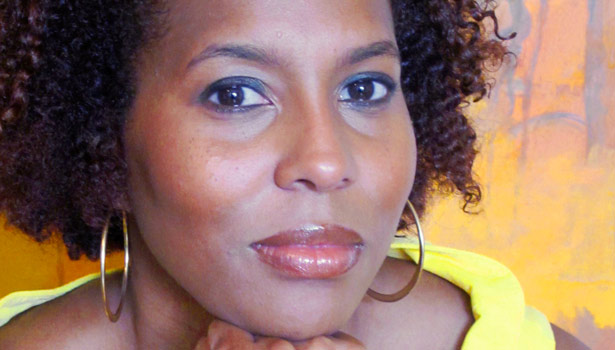
Salamishah Tillet
Associate Professor of English, University of Pennsylvania
Co-founder, A Long Walk Home, a Chicago-based national non-profit that mobilizes young people to end violence against girls and women
“If you want the most sustainable and transformative change, you start with the ones who are most vulnerable.… When we’re thinking about who’s the most vulnerable within the rubric of blackness, it’s working class women and girls, children, trans people.… It’s amazing to me, no one really sees [black girls]…. As a former black girl, as the mother of a black girl and as an American citizen, it’s just disheartening.”
Tillet told me she’s interested in “the relationship between state violence and private violence, the ways these two things feed off each other, and seeing not just state violence as a racial justice [issue] but these other forms of violence as racial justice [issues].… Why don’t we consider rampant sexual assault of black women as a form of state violence? Either we take it seriously as what it is, or we broaden our definition of what we take seriously.”
“I see myself as primarily an academic…and as someone who wants to learn how to be a better activist. What does that entail and what kinds of communities do you have to be a part of?… For me, the writing, the teaching, the talking are all spaces, and organizing is a kind of fourth space. In my case, they mutually feed off each other and support each other.”
Find her work here and follow her at @salamishah.
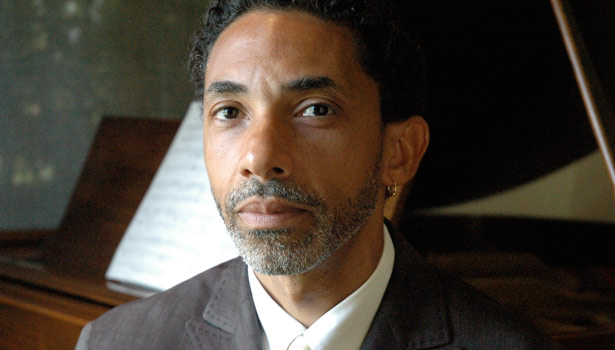
Robin D. G. Kelley
Gary B. Nash Professor of US History and Black Studies, University of California, Los Angeles
“I don’t play pundit because I’m not interested in ‘influencing popular opinion’ if it means sacrificing analytical rigor. Our job as intellectuals is to ask the hard questions, interrogate inherited categories, take nothing as self-evident, and go to the root of the problem. That includes the work of addressing contemporary social crises. I’m concerned that if we persist in conflating relevance with popular, the form, or rather the forum, will become our main concern.
“I resist putting limits on black public discourse because our concern should be the world—on resisting neoliberal policies that render precarious not only black lives but the lives of most people on the planet; on state violence, not just in our country but in Israel/Palestine, Brazil, Mexico, Egypt, Hong Kong, to name a few; on war, femicide, debt, continued indigenous dispossession—all of it.… Even when it comes to the issues deemed most urgent, we still exhibit incredible tunnel vision. For example, the discourse on police violence rarely acknowledges black women and transgender victims despite the best efforts by #BlackLivesMatter founders. And the epidemic of sexual and intimate violence hardly registers in ‘black public discourse.’ We still tend to limit our analysis to US borders, and we are too quick to regard the federal government as a natural ally against racist localities. The exception are the young activists leading groups such as We Charge Genocide, Black Youth Project 100, Dream Defenders, Million Hoodies, Hands Up United, #BlackLivesMatter, the Community Rights Campaign, Southerners on New Ground, among others. They bring much needed intellectual ferment, and a politics attentive to class, gender, sexuality, and internationalism. This is why I prefer an hour with these young organizers than a primetime TV slot.”
Follow his work at @RobinDGKelley.


